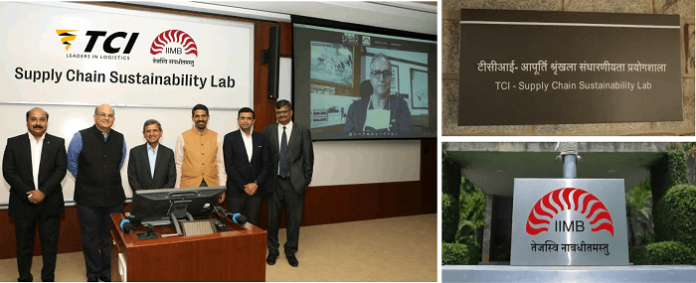The TCI-IIMB Supply Chain Sustainability Lab at the Indian Institute of Management Bangalore (IIMB), in partnership with Transport Corporation of India Ltd (TCI), has become the first organization in India to earn the prestigious ISO 14083 certification.
The recognition highlights the lab’s Transportation Emissions Measurement Tool (TEMT), a ground-breaking digital platform that enables organizations to quantify, report, and manage greenhouse gas (GHG) emissions from freight transportation activities.
Addressing India’s Transportation Emissions Challenge
Transportation accounts for approximately 14% of India’s total GHG emissions, with freight contributing nearly 40% of the sector’s CO₂ emissions.
Without intervention, these emissions are projected to quadruple between 2016 and 2050, potentially reaching 1.17 billion tons of CO₂ by 2050.
This alarming increase would raise transportation’s share of total emissions to 19%. Accurately measuring emissions is a critical first step in addressing this challenge.
The TEMT platform empowers organizations with the tools needed to quantify their emissions, setting the stage for actionable and effective reduction strategies.
What is ISO 14083 Certification?
ISO 14083, developed by the International Organization for Standardization (ISO), is a global standard for measuring GHG emissions from transport operations.
It covers all modes of transport, including road, rail, air, maritime, and inland waterways, and incorporates emissions from fuel combustion and electricity consumption.
The certification outlines robust calculation methods, data requirements, and reporting guidelines, enabling organizations to track emissions consistently and implement informed strategies to reduce their environmental impact.
TEMT: A Comprehensive Solution for Emission Measurement
The Transportation Emissions Measurement Tool (TEMT) is a versatile platform designed to assess emissions across all transportation modes.
The tool incorporates India-specific emission factors validated by the ISO 14083 certification, ensuring accuracy and relevance.
Key features of TEMT include
- Multi-Modal Analysis: Allows users to calculate and compare emissions across different transport modes for specific origin-destination pairs.
- Customization: Enables users to build tailored transportation chains and store data securely in the cloud.
- User-Friendly Output: Provides emissions data in PDF and CSV formats for easy reporting and analysis.
- Comprehensive Tracking: Facilitates monthly tracking and year-over-year comparisons.
This commodity-agnostic platform supports organizations in making data-driven decisions, promoting sustainability in logistics operations.
Collaboration with NLDSL Enhances Industry Impact
NICDC Logistics Data Services Limited (NLDSL) is a subsidiary of the National Industrial Corridor Development Corporation (NICDC). It operates under the Department for Promotion of Industry and Internal Trade (DPIIT), Ministry of Commerce and Industry. NLDSL has integrated the ISO 14083-compliant emission factors API into its Unified Logistics Interface Platform (ULIP).
The integration enables users to seamlessly calculate freight emissions and supports greater transparency in logistics.
Girish Kumar Surpur, CEO and Director of NLDSL, emphasized that the collaboration allows companies to assess their transportation activities’ environmental impact effectively.
By utilizing ULIP’s Carbon Emissions API, developed with the TCI-IIMB Supply Chain Sustainability Lab, trade and logistics players can make informed decisions. This includes adopting cleaner modes of transportation.
Driving a Sustainable Future
The TEMT platform, with its robust capabilities and ISO 14083 certification, is poised to transform how organizations approach transportation emissions.
It offers accurate measurement tools and actionable insights. This empowers stakeholders to contribute meaningfully toward a lower-carbon logistics ecosystem.
As per the press release, together, these efforts are shaping a sustainable future for India’s transportation sector.






























